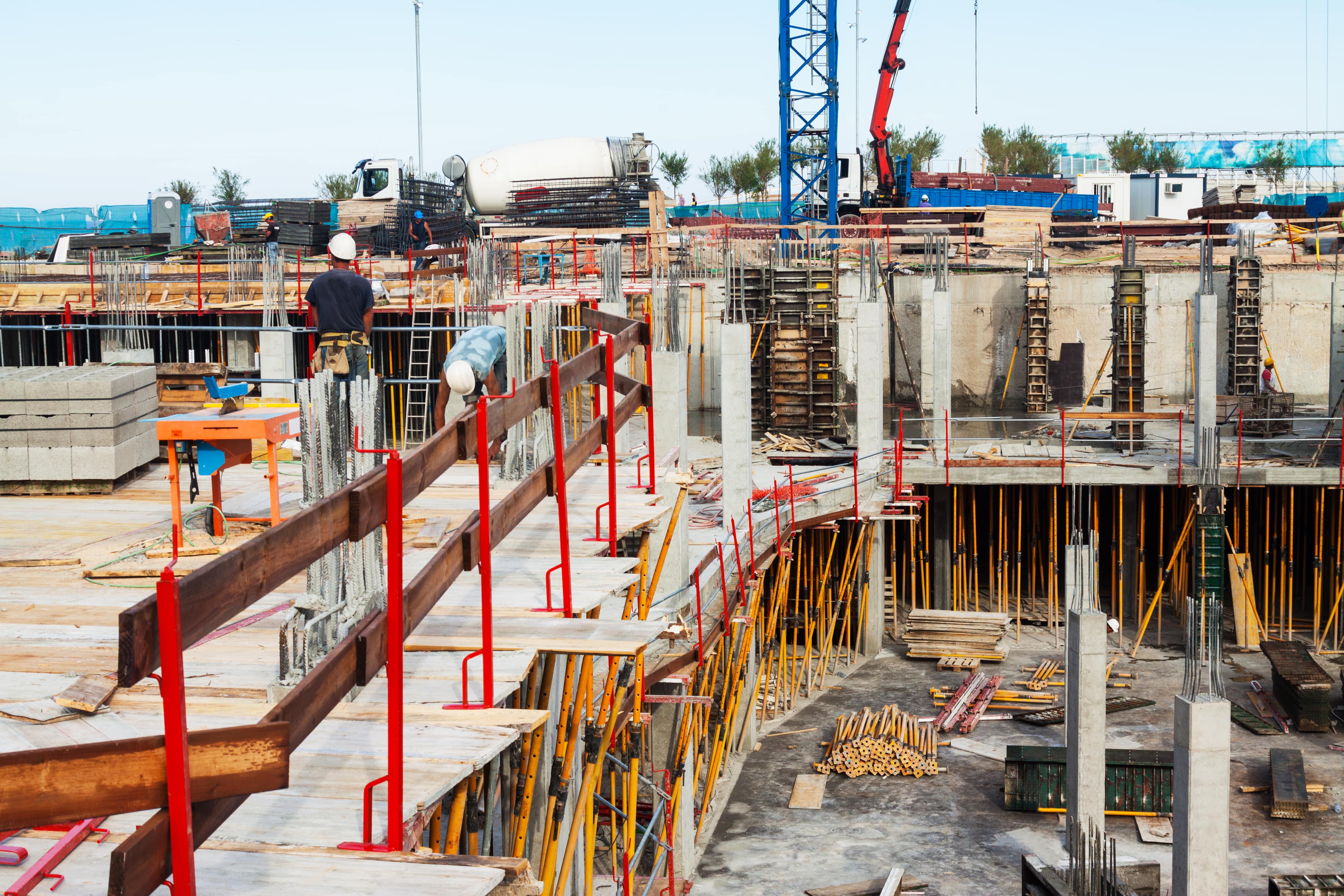A Complete Guide to Formwork Construction
November 25, 2024

Formwork is a temporary structure that builds strong structural elements. It is a mould used to build slabs, shells, columns, and beams. If you want to understand more about formwork in construction, read on. In this discussion, we will discuss what formwork is, why it is essential, the importance of formwork constructors, etc. Formwork contractors play a crucial part in construction. Different types of materials are used in formwork contractors supply them to the construction work. Timber, steel, plastic and fibreglass are used in formwork. Formwork adds flexibility to the building construction and helps design the building.
What is formwork in construction?
Formwork is a mould built with timber, wood, fibreglass and steel. It is flexible in design because it can be built on-site as per needs. Any type of shape and design can be built with formwork construction. After the formwork, liquid concrete is poured into the mould to take the structure's shape. The formwork structure is externally supported with timbers. Once the poured concrete becomes solid, formwork contractors remove external support and the formwork itself. Reinforced beams and slabs also use formwork to make them in desired shapes and sizes.
Why is formwork essential in construction?
Formark is essential in construction because it allows formwork contractors to implement architectural designs in reality. Formwork can be used to construct slabs, beams, and reinforced columns. A guide to formwork must mention that it helps maintain a building's structural integrity. Formwork contractors often use solid, removable metal structures to build strong formwork structures. Instead of using timber, metal structures can significantly reduce the wastage of formwork materials and reduce the cost of formwork construction.
What are the different types of formwork used in construction?
There are different types of formwork structures used in construction. Depending on their shape and functionality, they can be called column formwork, slab formwork, beam formwork, etc. These specific types of formwork structures help construct strong and stable buildings. This guide for formwork recognises that formwork helps build structures and improves building aesthetics as well.
Is steel formwork better than timber or plastic formwork?
It depends on the application of the formwork to build specific building structures. For example, steel formwork would be better if columns, beams, and slabs were manufactured using formwork. It is because they still formwork can still be reused in other construction facilities. It can also reduce costs. However, steel formwork limits the scope of creative designing of columns, beams and slabs. Timber and wood can be used to form specially designed columns and beams.
Is there any environmental impact of formwork materials?
The environmental impact of steel formwork is significantly lower than timber or plastic materials. Steel formwork materials can be used long to build beams and columns. There is hardly any waste material generated if steel formwork is used. On the other hand, plastic, wood, and timber cannot be used for a long time. After several uses, these materials do not remain useful. Hence, using new materials has an environmental impact. Formwork contractors prefer to utilise steel formwork for sustainable usage in the construction industry.
How formwork can be used to construct a curved wall?
Supporting a curved structure by formwork is a complex and challenging task. Formwork contractors carefully build a strong structure to carry the lord of curved walls. The structure should be flexible enough for the curved design. It should also have enough rigidity to carry the load of the structure. High-density plywood, aluminium, and steel are commonly used to build carved formwork. These materials have enough rigidity to carry the load of concrete. Formwork contractors can achieve the curved design by using steel.
Conclusion
Formwork is a complex but essential part of construction. Different formwork materials such as steel, timber, aluminium and plastic are used to build a strong structure. Formwork contractors prefer using steel materials to maintain sustainability and reduce costs. With the help of formwork, architects can implement creative structure designs. Flexible yet rigid formwork materials are used to construct curved walls. These are aluminium, steel and high-density plywood. At Formwork Contractors, we provide formwork services for construction projects. Our expert workers can construct strong formwork structures regardless of size and complexity. Contact us today for a free and personalised quotation.
Recent Blogs
- Timber vs. Steel vs. Plastic Formwork: Which Is Right for Your Project?
- Eco-Friendly Formwork Materials: Are They the Future of Construction?
- A Complete Guide to Slab Formwork: Types, Materials, and Best Practices
- Climbing Formwork: A Modern Invention For the Ease of Construction
- What are the Differences Between Formwork and Falsework?